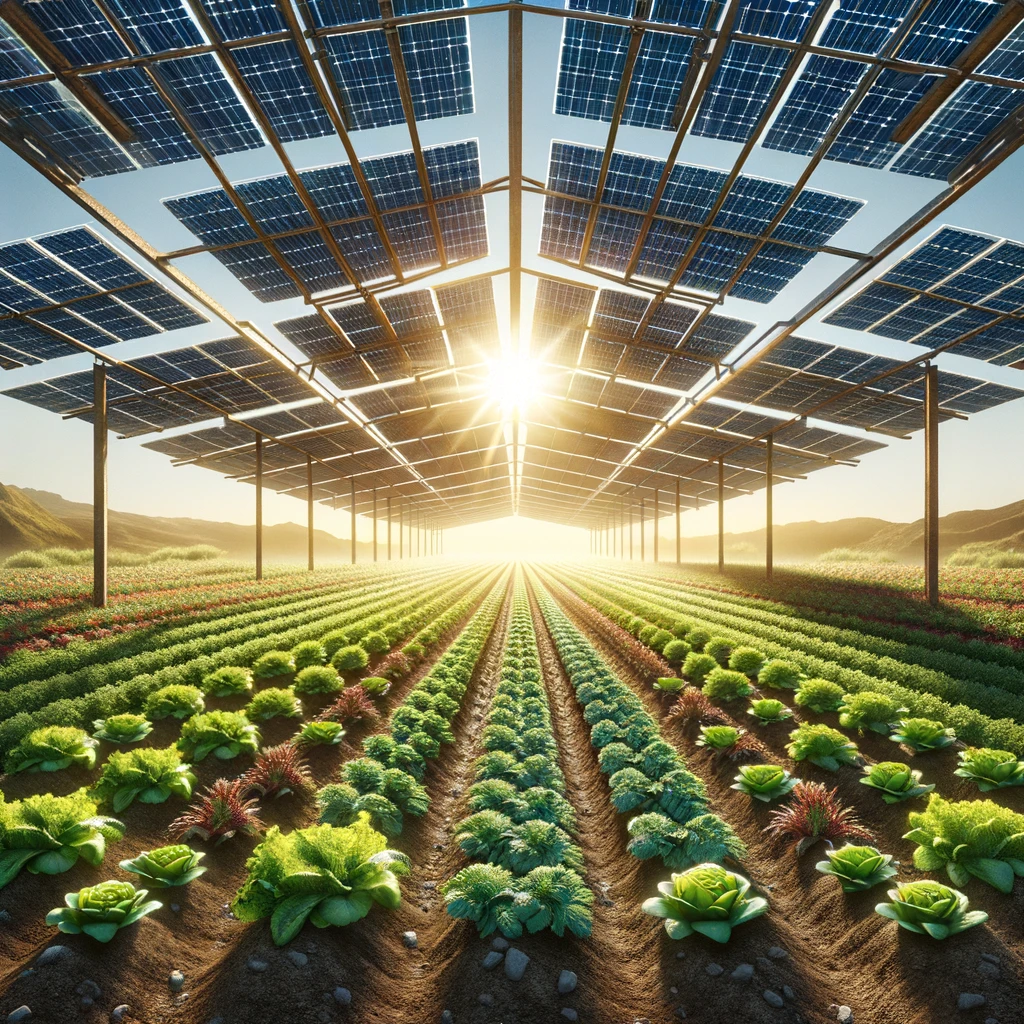
Decree No. 2024-318 of April 8, 2024: New Rules for Agrivoltaism in France
The Decree No. 2024-318, dated April 8, 2024, defines the modalities for the development and regulation of agrivoltaism. Photovoltaic installations on agricultural, natural, or forest land are referred to as “agricompatible” installations, which should not be confused with agrivoltaic installations. The decree clearly differentiates between the two categories in terms of development and regulation. This decree marks a decisive turning point for agrivoltaism in France.
Table des matières
Services and criteria defined, what you need to know:
The decree specifies the essential services that installations must provide to be classified as agrivoltaic:
- Improvement of agronomic potential and impact.
- Adaptation to climate change.
- Protection against climatic hazards.
- Improvement of animal welfare.
An installation will only be recognized as agrivoltaic if it offers at least one of these services while ensuring significant agricultural production and sustainable income without compromising the primacy of agriculture on the plot.
On the other hand, an installation would not be eligible if it:
- Is likely to cause substantial harm to one of these services or limited harm to two of these services.
- Does not allow agricultural production to be the main activity of the agricultural plot.
- Is not reversible.
Implementation modalities explained:
The decree places particular emphasis on preserving the agricultural use of the land:
- Limitation to 10% of the total area that can be non-cultivable due to the installation.
- The height and spacing of the installations must allow for normal agricultural exploitation.
- The installation must be reversible.
- Projects under 10 MW are not subject to a fixed coverage rate, leaving room for local authorities’ discretion, while for those over 10 MW, the coverage rate must not exceed 40%.
The key role of CDPENAF:
The Commission for the Preservation of Natural, Agricultural, and Forest Areas plays a central role in the approval of projects, highlighting the importance of reconciling energy development with the conservation of agricultural land.
Monitoring and control procedures: details and importance:
A test zone must be established to monitor the agronomic impact of the installations. Agricultural yields must be maintained or improved. A maximum decrease of 10% compared to the control plot will be tolerated, with the possibility of adjustment by the prefect in exceptional circumstances.
The legal and administrative framework: understanding the basics:
The duration of the urban planning authorization is limited to 40 years, with strict dismantling and site restoration obligations.
Financial guarantees covering the costs of dismantling and restoring the site post-operation may be required from the owner before commissioning.
In summary, Decree No. 2024-318 rigorously structures the integration of agrivoltaic technologies into the French agricultural landscape, ensuring that the development of renewable energy production is in harmony with agricultural and environmental imperatives while laying the foundations for continuous legislative and regulatory evolution in this expanding sector.
Furthermore, numerous decrees and regulatory texts are expected to specify, in particular, the methodology of the follow-ups to be carried out and the content of the numerous reports that the owners will have to submit to the competent authorities, as well as the framework document establishing the list of agri-compatible sites.
And what about Feedgy?
At Feedgy, we see agrivoltaism not just as a technology but as a valuable tool for agriculture. The panels we use provide shade, thus protecting animals from excessive radiation and contributing to better water management for crops by reducing evapotranspiration at the plot level.
By closely collaborating with farmers, we develop innovative projects with new photovoltaic panel technology that optimizes the share of photosynthetically active radiation (PAR), essential for stimulating plant growth.
